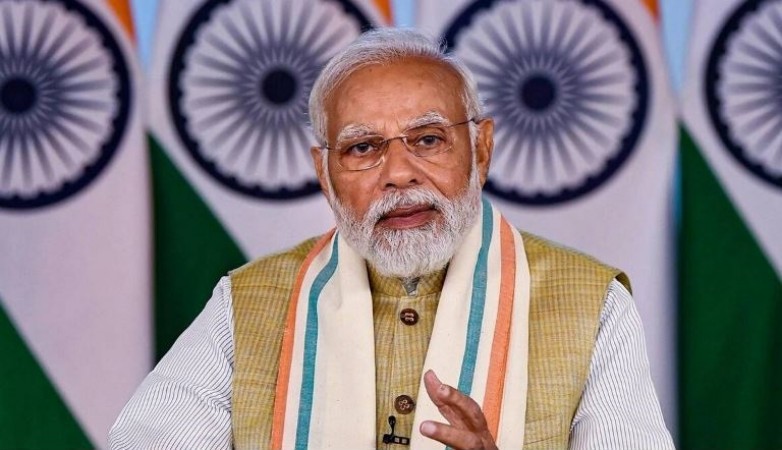
NEW DELHI: Prime Minister Narendra Modi on Monday, February 27 emphasised the importance of good governance for reaching the last mile, saying that such a strategy will leave no room for prejudice and corruption. As he emphasised his government's attempts to reach out to the most underprivileged segments of society with its numerous welfare programmes, Modi also emphasised the backwardness of Pasmanda Muslims.
The prime minister announced that his government is starting a specific mission for the tribal members who are in the most need during a post-Budget webinar on "Reaching the Last Mile."
"We must act rapidly to provide various facilities to the people of our tribes in the more than 22,000 villages and 200 districts across the nation. Similar to this, there are Pasmanda Muslims among our minorities, particularly among Muslims. How we must provide assistance to them, he continued, "since they still lag behind even now, many years after gaining their independence.
The backward sections of Muslims are called as Pasmanda Muslims. PM said, the strategy of reaching the final mile and the policy of saturation, which refers to the largest coverage of various programmes, complement one another. The Prime Minister emphasised that the development of tribal villages has been a priority for his government and that, in addition to financial resources, political will is necessary for development.
"The more focus we put on good governance, the easier our aim of reaching the last mile will be completed," he stated, highlighting the significance of good governance and ongoing monitoring for the intended goals. He claimed that the nation is now fully utilising the enormous potential of its tribal people, and he added that the most recent Union Budget gave particular emphasis to bringing the idea of "going the extra mile" to rural and tribal communities.
From the perspective of implementation and deadline-driven delivery, this post-Budget brainstorming is crucial. This, he added, ensures proper use of every dollar contributed by taxpayers.
In order to swiftly provide amenities as a specific mission for the most underprivileged members of the tribal community, he said, a "whole-of-the-nation" strategy is required.
The Prime Minister said, the aspirational district programme has proven to be a successful model for covering the last mile in this situation.
The government held the fourth of 12 post-Budget webinars on Monday to solicit thoughts and proposals for the successful execution of the programmes outlined in the Union Budget 2023.
In order to demonstrate the effectiveness of excellent governance in last-mile delivery, Mr. Modi used the examples of Mission Indradhanush's innovative vaccination and vaccine coverage strategies and the Covid epidemic. He claimed that in contrast to previous customs, in which the poor begged the government for basic services, the government now comes to the poor's doorsteps.
"We will observe what a significant change will occur in the work culture at the local level when we decide that every citizen in every location will receive access to every fundamental facility. This is the idea underlying the saturation policy. There won't be room for prejudice, nepotism, or corruption when our goal is to reach everyone, he said.
More than 60,000 "Amrit Sarovars," he said, have already begun construction. Thirty thousand of them have already been built. The Jal Jeevan Mission has received thousands of crores of rupees in funding to provide drinking water in rural regions, he said.
Just three crore rural homes had access to piped drinking water as of 2019, but that number has now risen to over 11 crore, he observed. "These efforts are raising the level of living for Indians who live in remote areas and have long waited for such services. We can continue after this point. We must also consider how to strengthen the water committee even further, he continued.
In order to identify ways to make robust yet affordable homes, discover simple ways to benefit from solar power, and make group housing models acceptable in both urban and rural regions, the prime minister encouraged stakeholders to discuss housing and technology.
He pointed out that the budget for this year included Rs80,000 crore for low-income housing. The budget also includes a goal to totally eradicate sickle cell anaemia. He explained that a "whole of the nation approach" is required and that all parties involved in health will need to move quickly.